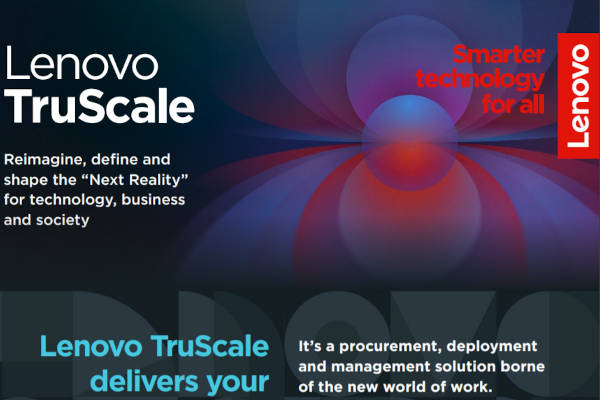According to new Lenovo research, (15%) of organizations currently meet the criteria to be considered a ‘Data Leader’. Lenovo’s ‘Data for Humanity’ report analyzes how companies harness data effectively:
“The ‘Data for Humanity’ report polled senior executives in organizations with revenues of $500 million or more across five countries to explore how the world’s largest businesses are harnessing data, and where they see opportunities to use it to meet their goals and draw an advantage in a competitive landscape.”
Lenovo’s ‘Data for Humanity’ report included five countries: France, Germany, Italy, the United Kingdom and the United States and represents a range of industries: transportation and logistics, business services, technology, media and telecoms, real estate and construction, pharma, medical and biotech, hospitality and leisure, industrial and chemicals, financial services, energy, mining or utilities, consumer and retail.
Other important facts about the report include Fifty-five percent of the organizations surveyed had revenues of $500 million–$1.99 billion; 30% had revenues of $2 billion–$4.99 billion; and 15% had revenues of $5 billion or more.
The Data Leaders are defined as an elite group that follow three key pillars, namely, Data Management, Data Analytics and Data Security. These leaders have enacted successful strategies which enable them to use data more effectively across variuos business functions:
“These data-centered organizations have consequently seen a myriad of benefits, and in the past 12 months have successfully increased revenue (78%) and improved customer satisfaction (70%). The Data Leaders are also far less likely to have experienced the effects of poor employee productivity (13%) and reduced innovation (10%).”
Business leaders state that over the next five years, their companies will most likely invest in: Cybersecurity tools (59%) Artificial intelligence (AI) tools (58%) Data analytics tools (57%) Data storage (55%) Other aspects seen as vital to extracting data capabilities include increasing automation of data management and/or analysis (89%) and improving the use of different types of data, such as external and unstructured data (88%).
Data Security is considered a prominent issue for business leaders and essential for companies to keep its data secure:
“Almost all (91%) of business leaders say that improving cybersecurity solutions will be important or essential to enabling their organization to unlock the value from its data. But while most (57%) have assurance that their data is secure, the remainder (43%) do not feel confident about this.”
An unseen fourth pillar is also examined. Data Culture is a limited data-driven culture restricting companies ability to expand data implementation strategies:
“Most business leaders are looking internally to implement data strategies that include plans to upskill employees on how to use data effectively (89%) and train them to analyze and manage data (88%). Appointing a single role responsible for improving the integration and use of data, such as a Chief Data Officer, is also regarded as important (90%), although only a fifth (21%) state that they have already done this.”




